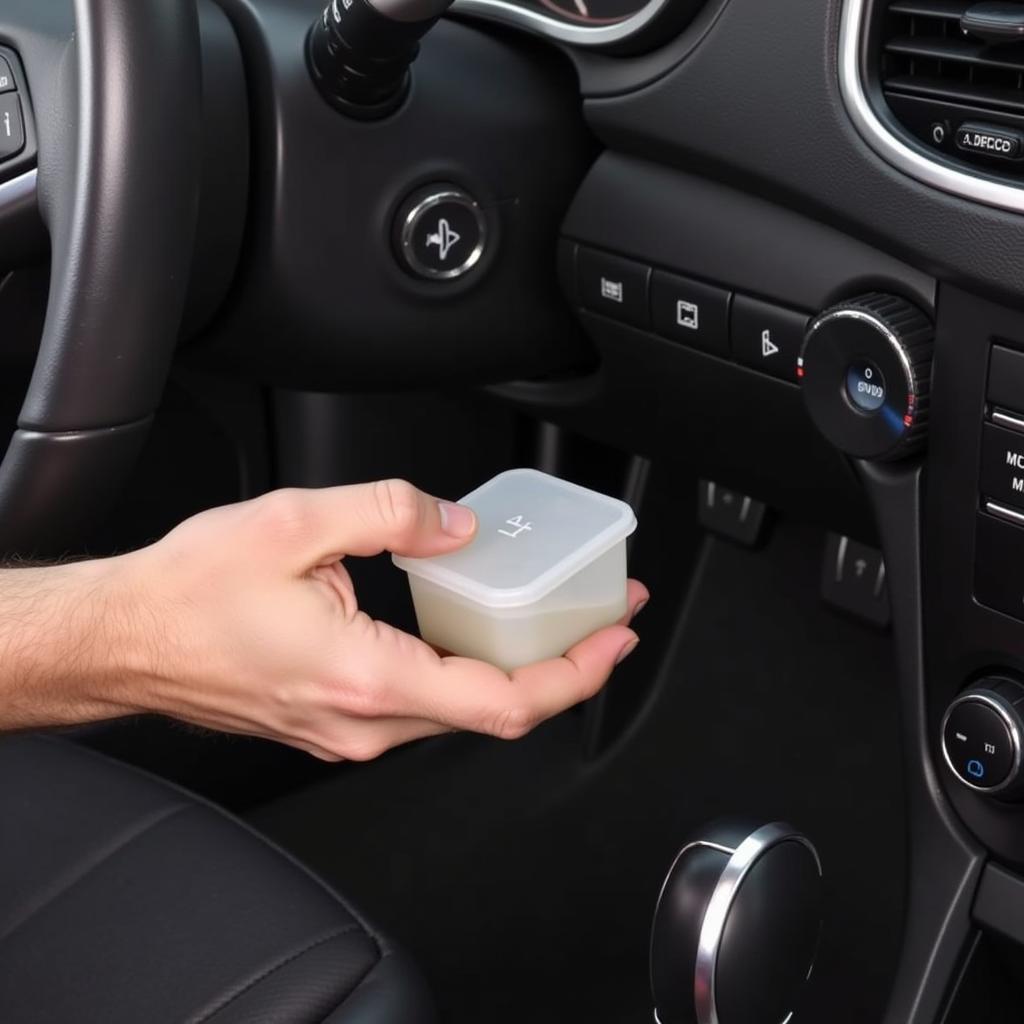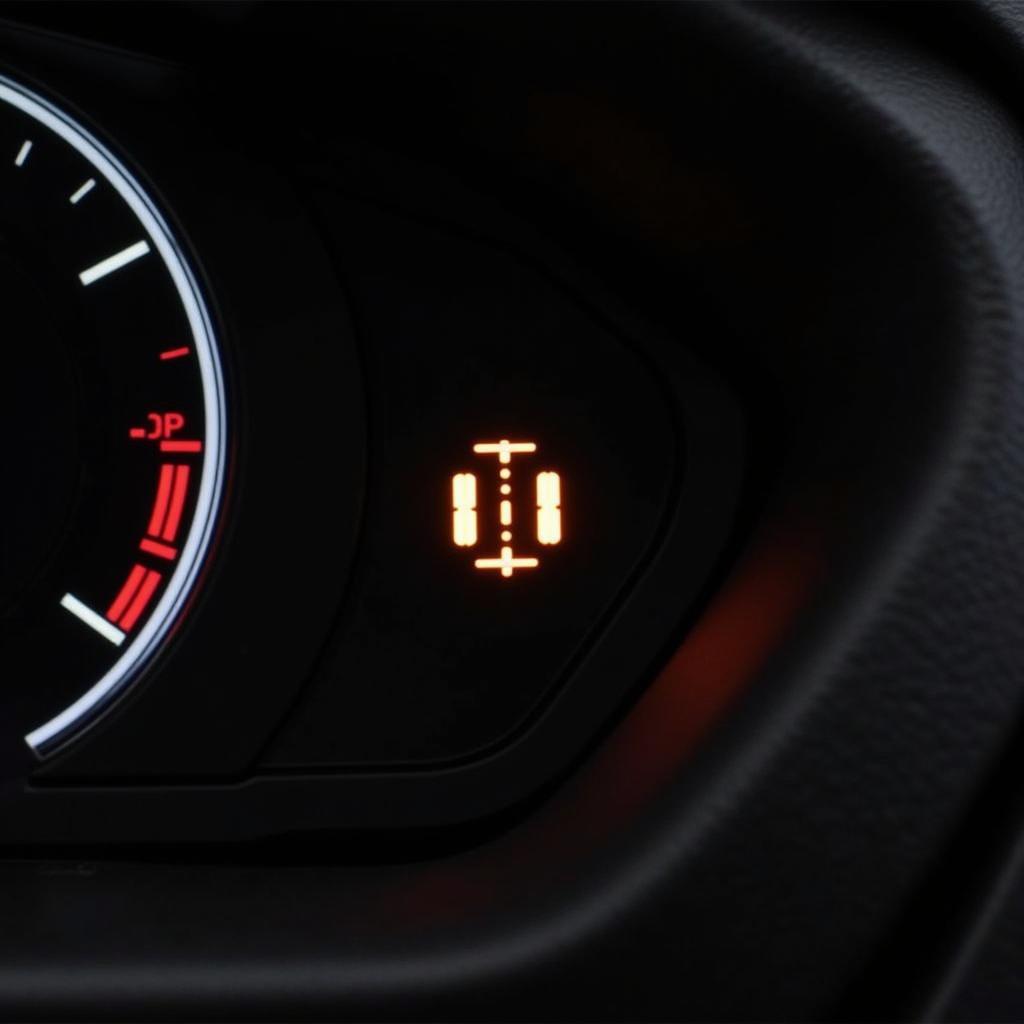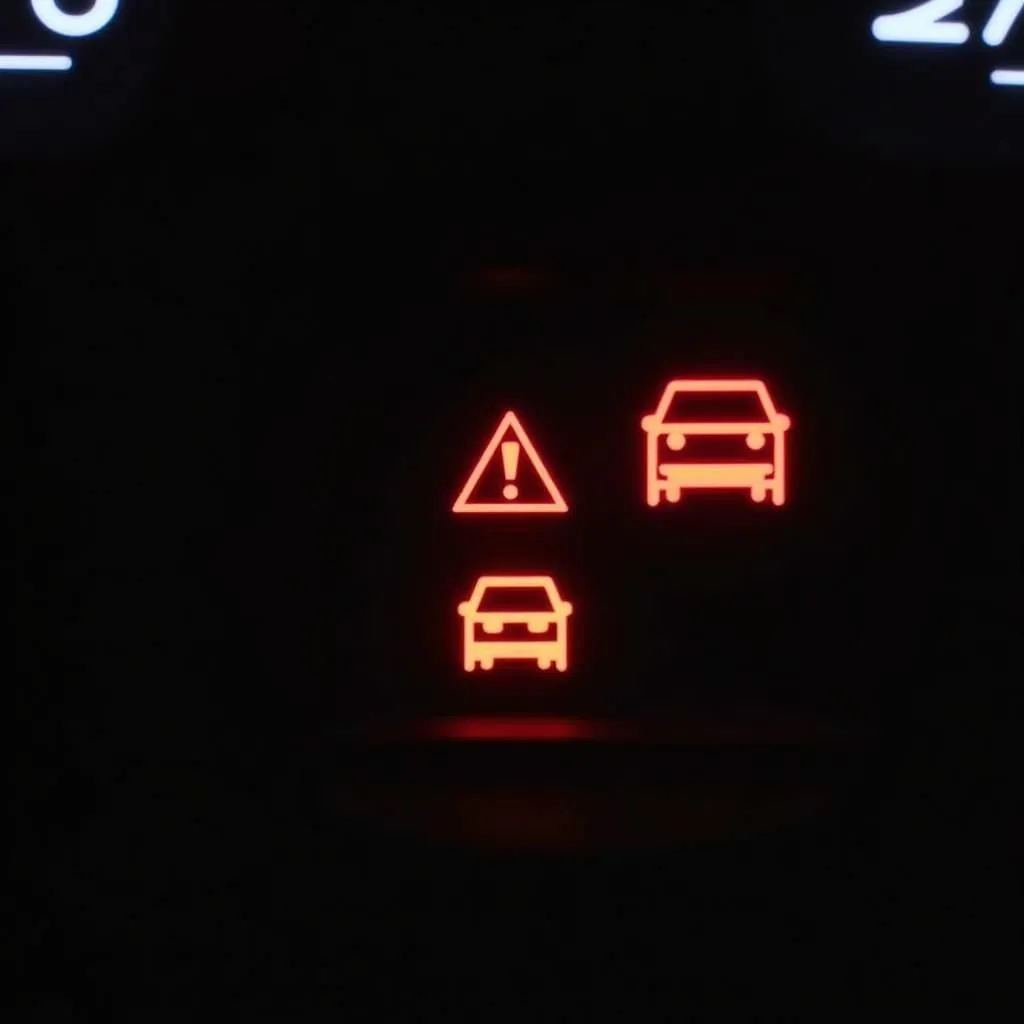You’re driving your Chevy Malibu when suddenly, the ESC warning light pops up on your dashboard. At the same time, you notice your brake pedal feels a little mushy. Coincidence? Maybe not. While these two issues seem unrelated, there could be a significant link – your brake fluid.
Understanding Your Chevy Malibu’s Electronic Stability Control (ESC)
The ESC system is a crucial safety feature in your Malibu. It constantly monitors your steering input and the car’s actual movement. If it detects a loss of traction, like during a skid or slide, the ESC system automatically applies brakes to individual wheels and manages engine power to help you regain control.
The Brake Fluid Connection: A Deeper Dive
So how does brake fluid fit into the equation? Your Malibu’s ESC system relies heavily on your braking system to function correctly. Here’s how:
- Hydraulic Pressure: Your car’s braking system operates on hydraulic pressure generated when you press the brake pedal. This pressure is transmitted through brake lines filled with brake fluid, activating the calipers to clamp the brake pads against the rotors, slowing or stopping your car.
- Low Brake Fluid: If your brake fluid is low, it can disrupt the hydraulic pressure needed for proper braking and, consequently, affect your ESC system.
- Air in the Brake Lines: Air can get trapped in the brake lines, often during brake repairs or if there’s a leak. Air is compressible, unlike brake fluid, leading to a spongy brake pedal feel and reduced braking effectiveness. This compromised braking performance can trigger your ESC warning light as the system might not engage properly.
 Checking brake fluid level in a Chevy Malibu
Checking brake fluid level in a Chevy Malibu
Common Causes of ESC Warning Light and Mushy Brakes
- Worn Brake Pads: One of the most common causes of low brake fluid is worn brake pads. As your brake pads wear down, the calipers need to extend further to engage the rotors, requiring more brake fluid. If the pads wear down significantly, the fluid level can drop enough to trigger a warning light.
- Brake Fluid Leak: A leak anywhere in the brake system can cause a drop in brake fluid. Inspect your garage floor for any signs of fluid leaks.
- Faulty Brake Components: Issues like a failing master cylinder, malfunctioning ABS module, or problems with the wheel speed sensors can also trigger the ESC warning light.
2001 chevy malibu brake warning light
What to Do When Your ESC Light Turns On
- Check Your Brake Fluid: If you notice your ESC light is on and experience a soft or spongy brake pedal, the first thing you should do is safely park your vehicle and check your brake fluid level. If it’s low, adding brake fluid might temporarily solve the issue, but it’s crucial to have your braking system inspected by a qualified mechanic immediately to diagnose and address the underlying cause.
- Avoid Driving: Continuing to drive with a malfunctioning ESC system or low brake fluid can be dangerous. It can increase your risk of accidents, especially in challenging driving situations.
- Seek Professional Diagnosis: An illuminated ESC warning light often indicates a need for professional diagnosis. Modern vehicles like your Malibu are complex, and pinpointing the exact cause requires specialized diagnostic equipment and expertise.
Remote Diagnostics and Software Solutions for Your Malibu
Advancements in automotive technology now allow for remote diagnostics and software solutions to address some car issues, including certain ESC and braking system problems.
- Remote Diagnostics: Some manufacturers and specialized service providers offer remote diagnostic services. This means a technician can remotely access your Malibu’s computer system to read error codes, analyze data, and potentially identify the root cause of the problem.
- Software Updates and Programming: Sometimes, software glitches or outdated software versions can contribute to warning lights and system malfunctions. Remote software updates or reprogramming can often resolve these issues without a trip to the mechanic.
brake assist warning light malibu
Expert Insight: “It’s incredible how technology has revolutionized car repairs,” says automotive electronics specialist Mark Williams. “Remote diagnostics and software solutions are game-changers, offering convenient and often faster solutions for many car owners.”
Conclusion
Ignoring an ESC warning light in your Chevy Malibu, especially when accompanied by changes in brake pedal feel, can be risky. While low brake fluid might be a simple fix, it often points to underlying issues requiring immediate attention. Remember, a properly functioning ESC system is vital for your safety on the road. Don’t delay getting your Malibu checked by a qualified professional or exploring remote diagnostic and software solutions to get you back on track safely.
FAQs
1. Can I drive my Malibu with the ESC light on?
It’s not recommended. Driving with a potentially malfunctioning ESC system can compromise your safety, especially in slippery or challenging driving conditions.
2. How often should I change my brake fluid?
Consult your owner’s manual for specific recommendations, but it’s generally advisable to have your brake fluid flushed and replaced every 2-3 years or as recommended by your mechanic.
3. Does my Malibu have a brake wear sensor?
Yes, most modern Malibus have brake wear sensors that trigger a warning light on your dashboard when your brake pads reach a certain wear limit.
4. Can a faulty ABS sensor cause the ESC light to come on?
Yes, since the ESC system relies on inputs from the ABS system, a faulty ABS sensor can trigger the ESC warning light.
5. Can I add brake fluid myself?
While it’s possible to top up your brake fluid temporarily, it’s crucial to have a professional diagnose the root cause of the low fluid level.


